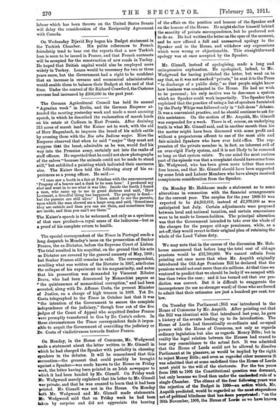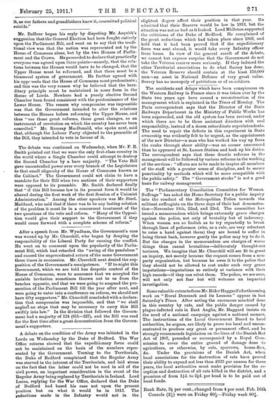On Tuesday the Parliament (Bill was introduced in the House
of Commons by Mr. Asquith. After pointing out that the Bill was identical with that introduced last year, he gave a history of the events leading up to its introduction. The House of Lords had theoretically co-ordinate and co-equal powers with the House of Commons, not only as regards ordinary legislation but also as regards Money Bills ; but in reality the legal relation between the Houses had ceased to bear any resemblance to the actual fact. It was admitted that the House of Lords could not be allowed to -dissolve Parliament at its pleasure, as would be implied by the right to reject Money Bills ; and even as regarded other measures it was admitted that at some undefined time the House of Lords must yield to the will of the electorate. For the ten years from 1895 to 1905 the Constitutional question was dormant, but only because we lived then wider the unchecked rule of a single Chamber. The climax of the four following years was the rejection of the Budget in 1909—an action which, Mr. Asquith predicted, would be regarded as the most stupendous act of political blindness that has Amen perpetrated: " on the 30th November, 1909, the House of Lords as we have known
it, as our fathers and grandfathers knew it, committed political suicide."







































 Previous page
Previous page